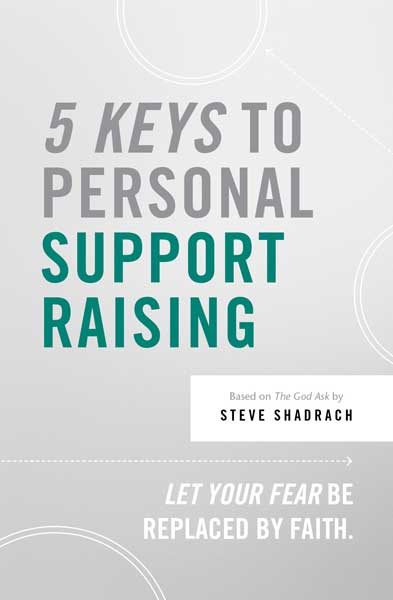Here’s the scene: Stella Staffer has raised her monthly support, reported to her ministry assignment, and is off to a good start. She is also being faithful to stay connected to her financial partners through newsletters, periodic phone calls, and visits. In the process, she realizes that Marla and Major Donor, one of the couples that supports her, is probably worth a lot due to the company they own, house they live in, and the ministries they support. As Stella gets with them they are curious to know about the organization’s vision and leadership and she is glad to share.
But panic strikes Stella one day when she finds out the President of the ministry is coming through town trying to raise funds for the whole organization. She does not want the Donor couple to meet the President because they might decide to give their $150 a month to the organization rather than to her. So she hems and haws, telling the ministry leaders she can’t really think of anybody who might be a candidate to give larger gifts. In fact, word has spread through the grapevine, and all of the ministry staff from town to town is protecting their potential bigger givers from the “greedy claws” of the organization’s development officers!
The problem is that Stella and her fellow staffers have it all backwards. When a staff person identifies someone on their team who might be a larger giver, they should instead work hard to introduce them to the leadership of the ministry. Studies show that when a person gives to an individual and the ministry their commitment, loyalty, and longevity are significantly increased—to both parties. When staff catch this spirit of sharing (vs. hoarding) supporters it opens up entire new networks of potential givers to the overall ministry. This will result in a healthier organization that trickles down to a healthier staff and programs.
Wise staff cheerfully share their supporters with ministry leadership.
Bottom Line:
1. Givers like Marla and Major Donor will probably not write Stella a $25,000 check.
2. If they can meet the ministry leaders and grasp the organization’s vision—and are asked to invest—they might just write that check.
3. This initiates a triangle of trust between the givers, the staff person, and the leadership, where everyone wins—not to mention the brownie points the staffer obtains in the process!
4. Besides, our supporters don’t belong to us (or the organization). They belong to God and He has temporarily shared them with us. If we don’t share them with others, they might be taken away!

